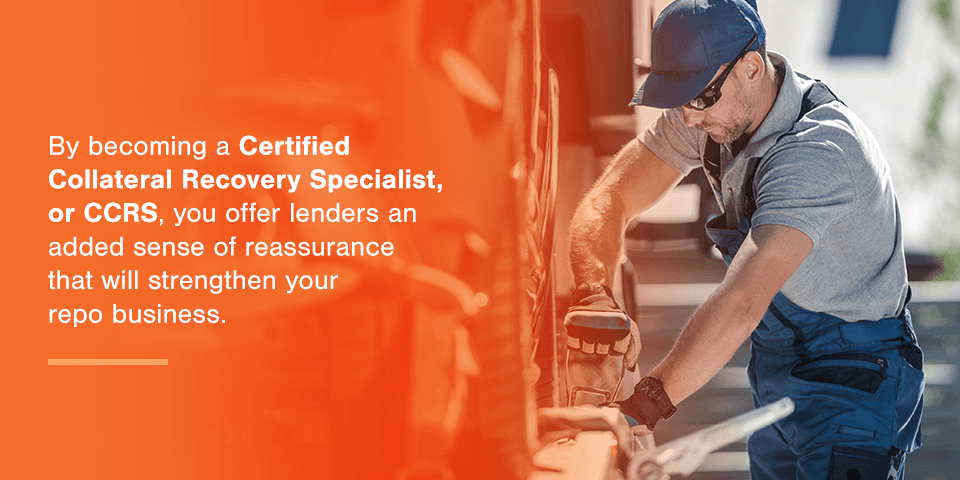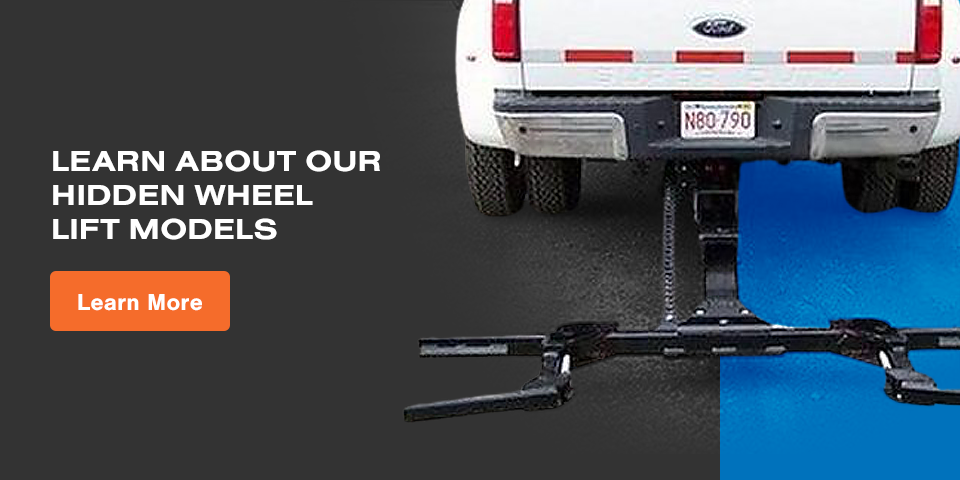
Being a repo man or woman is a challenging but lucrative and rewarding job. As a repo person, you’re responsible for recovering unpaid property from borrowers who can’t repay their credit or loans to the lenders. You may work for various lenders, including credit unions, banks and financial institutions, that hire you directly or via a debt collection agency.
In most cases, repossession agents retrieve property such as cars, trucks, motorcycles, boats and other equipment, including televisions and refrigerators. Typically, a lender has the right to repossess property when the borrower defaults on payment, with no need for police or court involvement as long as there’s no breach of peace.
Here’s How to Become a Tow Truck Driver and Repo Agent in PA
Suppose you plan to work as a repo agent. In that case, you’ll need a knack for investigative thinking, a commercial driver’s license, working knowledge of your state’s repossession laws and a flexible work schedule for nighttime jobs. However, there are many additional requirements for succeeding as a repo agent.
Repo Agent and Tow Truck Driver Requirements in Pennsylvania
Repossessing property can be risky, and the requirements for repo agents vary according to where you’ll be working. For instance, not all states license repo agents, and specific requirements will govern how to get a repo license in each state. Let’s take a look at the licensing requirements for Pennsylvania collector-repossessors:
1. Obtain a Repo Agent License
In Pennsylvania, the Department of Banking and Securities regulates repossession work. You’ll need to obtain a license through them to become a repo agent. According to the state’s collector-repossessor application for licensure, the Department of Banking and Securities issues licenses based on the Consumer Credit Code relating to motor vehicles.
To fulfill the requirements of a Pennsylvania repossession license, your application must include a $5,000 bond, an initial licensing fee of $350 and annual renewal fees of $250 to the Department of Banking and Securities. The application recommends consulting with an attorney to ensure your repossession operations comply with all state laws. Understand Pennsylvania Commercial Driver’s License (CDL) rules for tow truck operators.
2. Get Insurance
Another must-have for Pennsylvania repo agents is insurance. You find an insurance broker specializing in business insurance to obtain liability and wrongful repossession insurance. You might also consider business or commercial coverage for your work vehicle to protect against accident liabilities.
Many trade organizations, including the American Recovery Association, the National Finance Adjusters, and the Time Finance Adjusters, function as umbrella companies for repo agents. These companies employ contractors and offer advantages such as advertising services and access to bond insurance against financial loss and incomplete projects. Applying to these umbrella organizations requires state licensure and background checks.

3. Become a Certified Recovery Agent
As the repo industry moves toward higher standardization and qualification of its contractors, you might also consider becoming a certified recovery agent. An organization like the American Recovery Association issues certification for candidates who receive on-the-job training, complete coursework and sit for a written test. By becoming a Certified Collateral Recovery Specialist, or CCRS, you offer lenders an added sense of reassurance that will strengthen your repo business.
4. Open a Freelancing Business
Attracting repo contracts can be difficult, especially when starting out. Before starting to freelance, you might consider working with a high-end repo company to gain familiarity with the business. Assisting, driving and clerking for established repo businesses are all great ways to develop the necessary skills and ease into freelancing independently.
Once ready to open a freelancing business, you should consider the financial side of repossession work. As an independent repo agent, the going rate for repo jobs on vehicles is $150 to $400, and you can make more money by charging per job and tracking extra fees for locating missing borrowers. You should also consider recording data about the success of your services and developing an online presence that will attract new clients.
A freelance repo business also needs an office space with a yard or storage area large enough to house towing equipment. You might consider investing in a hidden towing system for your truck. With a hidden wheel lift, you can convert your ordinary truck into a tow truck that won’t attract attention from uncooperative borrowers.
5. Learn Repo Techniques
Becoming a repo agent in Pennsylvania requires licensing, certification, knowledge of the relevant laws and the ability to attract and execute contracts. Before jumping into repo work, consider your options as a company agent or freelancer. Personality, skillset and lifestyle may be additional factors in your decision to pursue a career in repossession.
Apart from these logistics, you’ll also need to learn how to recover vehicles and other kinds of property. The techniques you can use may depend on your location. Some states consider removing a vehicle from a closed garage to be a breach of peace. Still, in most cases, you can repossess a borrower’s property at any time without notice and with the right to enter private property to complete the job. The essential question underlying breach of peace circumstances in most repossession law decisions is whether the repo job created an unreasonable risk of violence.
To avoid legal issues, unnecessary run-ins with police and potential physical harm, you should approach repo work with care. The process of physically recovering the lender’s vehicle involves several steps:
- Locating the borrower and driving to the location in your tow vehicle.
- Returning to your office with the lender’s vehicle.
- Running an inventory on any property left inside the vehicle by the borrower.
- Assessing and noting the condition of the vehicle.
- Reporting the repossession to the authorities.
- Notifying the lender and sending an invoice.
Sometimes, upset borrowers may present difficulties for repo jobs. At any point in the process, a borrower might attempt to claim that the repo agent stole the personal property remaining within the vehicle. To reduce the difficulties caused by personal belongings, be sure to report your activities to the authorities and make borrowers’ belongings available to them after repossession. Being transparent with your actions will reduce the risk of issues down the line.
6. Additional Training and Certification Opportunities
There are professional certifications you can earn to elevate the safety and professionalism of your work as a repo agent. WreckMaster and Towing and Recovery Association of America (TRAA) certifications ensure that repo agents understand the proper vehicle recovery techniques to avoid or limit damage to repossessed vehicles and nearby property.
Traffic Incident Management (TIM) is essential when handling a repossession that is located in a highly congested area or roadway; agents learn how to work safely around active traffic sites by setting up warning signage and coordinating with emergency responders when necessary. First aid training prepares agents for unpredictable medical crises.
Common Questions to Consider When Becoming a Repo Agent
Explore some of the most frequently asked questions about successfully becoming a repo agent and tow truck driver in Pennsylvania below:
- Do I need a CDL to drive a tow truck in PA? If the vehicle you intend to drive exceeds 26,000 pounds, a CDL is required.
- What class of CDL do I need for a tow truck? A Class B CDL is needed for a single vehicle exceeding 26,000 pounds. A Class A CDL is required if you are towing another vehicle and the combined weight exceeds 26,000 pounds. An Air Brake Endorsement is required if your tow truck operates with air brakes.
- What insurance do I need to start a towing business in PA? There are several types of insurance required for towing operations in PA, including commercial auto liability insurance, on-hook coverage, general liability insurance, cargo insurance, workers’ compensation and garage liability.
- Do I need special permits or PUC authority to tow in PA? Yes, you do need PUC authority, including a PUC certificate and PUC number. Tow truck drivers need a Pennsylvania business license, a federal DOT number, and local business permits.
- How do I get on a police rotation list? Once you have met all of the requirements as a business and as a tow truck driver, then you can contact each municipality’s police department and request a rotation list application and/or requirements and submit an application. It also helps to build relationships locally and beyond — join towing associations, attend township meetings, and network with local police departments.
Learn About Our Hidden Wheel Lift Models
You’ll need communication skills and high-quality, cost-effective equipment to be at the top of the game as a repo agent. Before you apply, see what a repo agent’s day looks like.
Lift and Tow provides easy-to-install, American-built towing systems that convert your vehicle into a full-service tow truck. Even better, our wheel lift systems are completely hidden from view when not in use. You can install the equipment yourself or arrange installation with an experienced professional. With over 25 years of industry experience, we offer you the edge you need to succeed in the repo field.
Are you interested in learning more about our towing products and services? Contact Lift and Tow online or call us at 717-496-0839 for additional information today. We’re always here to help.
Tow Truck Driver Guidelines By State
Alabama
Alaska
Arizona
Arkansas
California
Colorado
Connecticut
Delaware
District of Columbia
Florida
Georgia
Hawaii
Idaho
Illinois
Indiana
Iowa
Kansas
Kentucky
Louisiana
Maine
Maryland
Massachusetts
Michigan
Minnesota
Mississippi
Missouri
Montana
Nebraska
Nevada
New Hampshire
New Jersey
New Mexico
New York
North Carolina
North Dakota
Ohio
Oklahoma
Oregon
Pennsylvania
Rhode Island
South Carolina
South Dakota
Tennessee
Texas
Utah
Vermont
Virginia
Washington
West Virginia
Wisconsin
Wyoming
